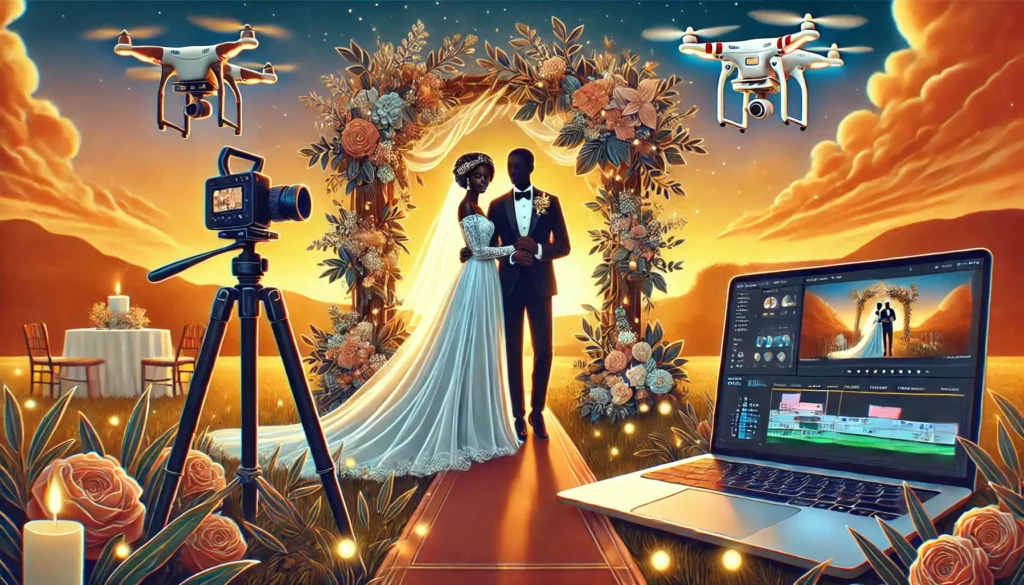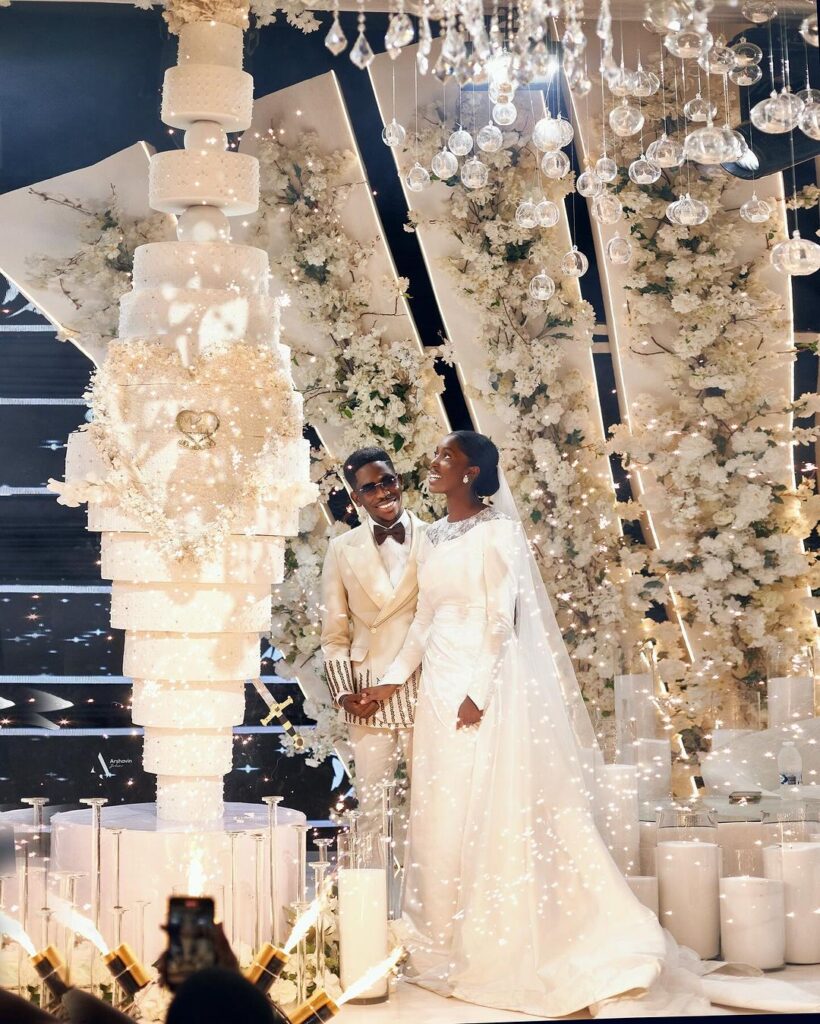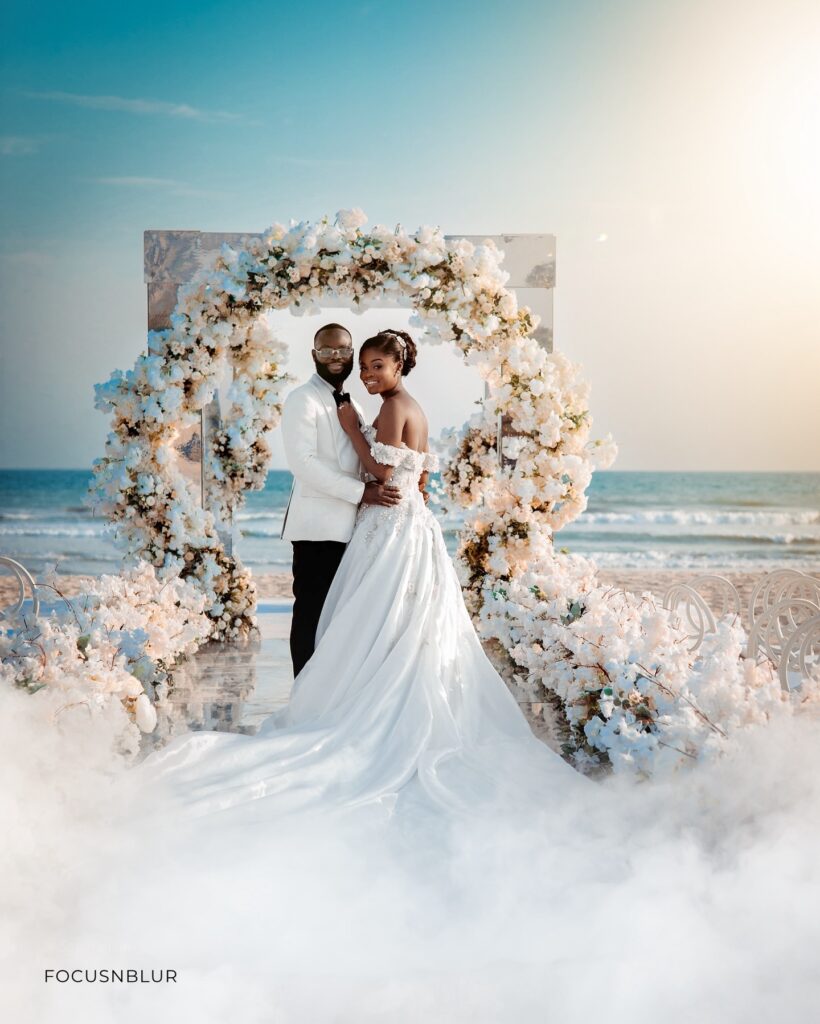
The year is 2000. Photooo stands at the church entrance as the overlord of the wedding ceremony. Everyone knows him. Of course, they will. Because if you want that photo of you as a wedding guest, you have to know him enough for him to pass by your house to hand you your copy in one of his many rounds.
If not, you would have to visit his shop for your copy of the photo - a trip that could prove fruitless many times because of Photooo’s many rounds.
Years down the line, another set of photographers had started crawling in the wedding space. They did not like to be called 'Photooo' for the most part. Their process was different. You did not have to be at their office to receive copies of your photos. Neither did they have to visit your house. All you needed was good internet and an email address.
Then social media and the popularity of smart phones changed the game making it even easier to receive photos from these new photographers.
The point is, photographers (both Photooo and the new set of digital photographers) have been relevant to the wedding industry since ages past.
However, the photographers who did not adapt to the changing times saw their business crumble. The ones who revised their processes to suit the needs of the time went on to build on their experiences to be among the best - even in the digital photography world.
Time changes. And the scale of social media in all aspects of life has birthed another line of storytelling in the wedding industry: Wedding Content Creation.

This story is based on my experience as a digital creator and strategist for over a decade. I have worked for arguable the top two purely digital media platforms in Ghana before most of the traditional media firms adapted to the trends of media to create digital branches. One of these companies was tagged as the ‘Buzzfeed of Africa’, the other is my most immediate employer and arguably the most viral media house in Ghana. You most likely have seen and shared content on there but that is not the story for today.
Experience is the worst teacher. It gives the test before presenting the lessons. The good news is I have already taken the tests and had the lessons to project these points, which show that Wedding Content Creators will be a critical part of the wedding industry as long as social media flourishes.
As Director of Content for my last employer, I was faced with one of the biggest challenges for our event coverage and video teams. When video content creators started gaining grounds in Ghana (what is generally termed bloggers), I saw we started losing out on the relevance of our event coverage.
We would go out to events with the fanciest cameras and most expensive lenses to shoot, come back edit, run it through a series of reviews and colour corrections, draw a strategy to distribute before publishing and end up with the majority of our audience not interested.
Why? They had already watched ten different short-form angles from the ‘bloggers’ who were at the same event. Most of them did not have time to spare to watch the same thing again. The experience had already been lived.
My next action was to put in a request for the latest phone with the best cameras and the best possible internet connectivity for crowded spaces. In a few weeks, we were back on top as all event coverages were real-time first, andcamera edits second.
It still was a confusing system for many of my colleagues in the media space. Why would a whole media house take a phone to cover an event? The answer is in the experience you create for your audience and adapting to them and the platform needs without compromising quality.
This experience mirrors the current state of wedding storytelling. While traditional photography and videography remain essential, Wedding Content Creators thrive by delivering instant, authentic moments optimized for social media.

Wedding Content Creators combine storytelling with social media expertise. Unlike traditional photographers who deliver polished albums and videographers who produce long-form films, content creators focus on short, engaging clips ideal for platforms like Instagram, TikTok, and YouTube Shorts. These platforms demand real-time, snackable content that resonates with today’s audience.
Modern couples often prioritize the immediate impact of their wedding on social media. While polished deliverables from photographers and videographers are cherished, Wedding Content Creators cater to the "now," offering real-time highlights that capture the day’s energy and excitement.
Some couples value privacy, but others embrace the dopamine hit of going viral—both are valid. For the latter, Wedding Content Creators are indispensable.
Wedding Content Creators excel at capturing raw, unscripted moments that traditional methods might overlook: a guest’s reaction, snippets of a heartfelt speech, or unguarded interactions between the couple. These authentic, unfiltered snapshots resonate particularly with Millennials and Gen Z couples.
Content creators often act as unofficial marketers for vendors. Quick, viral-ready clips showcasing a florist’s arrangements or a caterer’s presentation can significantly boost their visibility. While traditional photographers and videographers focus on archival quality, creators’ real-time content supports vendors’ marketing efforts.
Wedding Content Creators don’t compete with traditional photographers and videographers—they complement them. While traditional professionals focus on timeless, high-quality deliverables, content creators cater to the demand for real-time storytelling. Together, they offer couples a comprehensive narrative of their special day.
Critics argue that Wedding Content Creators trivialize weddings by prioritizing "likes" and "shares." In reality, this shift reflects a cultural evolution rather than a devaluation. Embracing digital-first storytelling ensures relevance in a social media-driven world.
For example, TikTok’s recommendation-based algorithm has reshaped content distribution. In 2025, a random guest’s clip of a wedding moment could propel the event into viral fame. Wedding Content Creators understand and adapt to these dynamics, offering couples tailored solutions for their digital needs.
In 2025, the wedding industry will likely see a collaborative model where Wedding Content Creators work alongside traditional vendors. This partnership ensures that couples receive both the immediacy of viral-ready content and the timelessness of archival-quality deliverables.
As long as social media thrives, Wedding Content Creators will remain integral to the wedding industry. It’s time to adapt or risk being left behind.